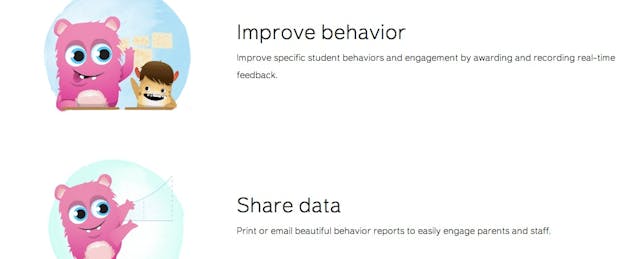The New York Times sparked a fierce debate around ClassDojo on Monday with a pair of articles: one focused on how ClassDojo works and another around its privacy practices. On Tuesday, CEO Sam Chaudhary said that the company was changing at least one policy--namely beginning in January it will keep student behavioral data for only one year.
That was a smart change. Chaudhary says that he hopes his firm can lead the edtech industry in creating strong user privacy policies.
A growing number of edtech entrepreneurs have said they're using "big data" to build their businesses. But too frequently such much "big data" plans sound suspiciously like manipulating student data. There's scant evidence that compiling long data dossiers on students over time will improve their learning.
On ClassDojo's own blog, Chaudhary wrote:
"...we’re most concerned by the insinuation that a ClassDojo profile might become a “permanent record” that follows a student. This idea horrifies us, and runs completely counter to our vision for ClassDojo. We see ClassDojo as a way for teachers, parents and students to communicate, and to understand each other. We want to help kids succeed by recognizing and sharing the things they do well. No part of that vision needs 'permanent records.' We have always believed this, but the tone of the article suggests that we need to go even further to alleviate concerns here."
And so they did. Chaudhary wrote to EdSurge:
"From January, this deletion policy will apply to every student profile, regardless of the country where ClassDojo is being used. We’re not trying to mince words here: there are no 'gotchas.' Only teachers can create student profiles, and only parents and students can choose to save them. If they don’t save them, no student data will be retained beyond a year."
Chaudhary promises more announcements in the future around protecting users' privacy.
That Dojo itself should draw criticism is no surprise. Of all the jagged arguments in education, none are so sharp as those around how we educate kids. Dojo is a "behavior management tool": Points can be awarded or earned for positive behavior and can be taken away for disallowed behavior. Chaudhary says that 90 percent of feedback given via ClassDojo is positive, reinforcing good behavior.
Teachers frequently say that managing the classroom is one of the biggest challenges they face. Exactly how they should achieve that control differs. Some appreciate Dojo's point system; others distain it. For instance, even on Dojo's blog, teacher Matt Renwick commented that "there is a slippery slope" in using the approach Dojo takes:
- Focusing too much on behavior could make students (and teachers) pay less attention to the lesson;
- Critiquing or rewarding behavior too quickly could mean teachers aren't asking themselves whether the lessons are engaging and clear;
- Students may be acting out because of deep issues that teachers need to address.
Teachers who are fans, by contrast, say it helps them work with challenging kids. "...It encourages students who often do not receive positive feedback..it allows me another way to reach the most difficult students and offer them encouragement and hope," writes Kelly Connolly-Hickey, a teacher in New York.
Expect the debate about how to coax good behavior out of students to continue. But ClassDojo has moved forward the conversation around how student data should be handled and protected.


